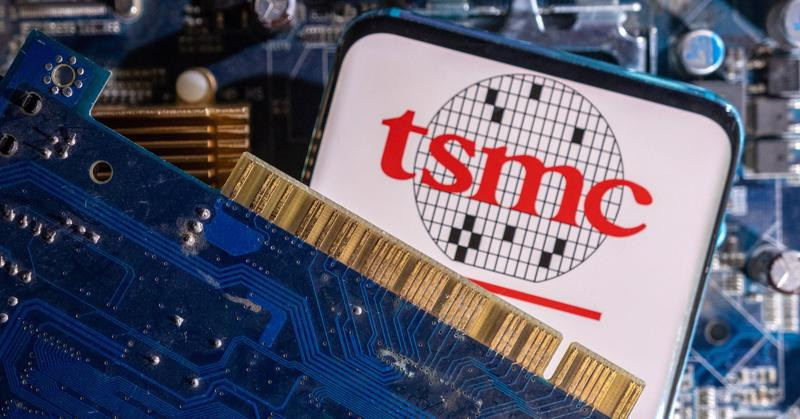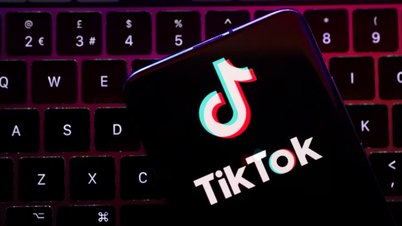US issues ultimatum to TikTok
On April 24 (local time), US President Joe Biden signed a foreign aid package, including a bill forcing ByteDance to divest from TikTok within one year.
That gives ByteDance at least nine months to complete the deal, although the president could extend it by three months if he sees progress.
Previously, on April 23, the US Senate completed voting to pass a bill requiring parent company ByteDance to completely divest from the video-sharing app, or TikTok will be banned from operating in the US.

ByteDance lobbyists spent a record $2.68 million targeting federal and congressional officials in the first three months of 2024, according to a U.S. Senate lobbying disclosure report. TikTok spent more than $4.5 million on a television and digital ad campaign opposing a bill to ban the app, according to data from AdImpact.
TikTok spokesman Alex Haurek said the company will file a lawsuit in court, which could take longer if the court delays enforcement while it resolves the matter. It remains to be seen how China will react and whether it will allow ByteDance to sell TikTok.
Late on April 25, in a statement posted on social network Toutiao, TikTok's parent company confirmed that it has no plans to sell the app, responding to a report by The Information that ByteDance is considering selling TikTok in the US without its video recommendation algorithm.
According to The Washington Post, US tech companies, including Meta, Google and, to a lesser extent, Snap and Amazon, are struggling to compete with TikTok. The US Congress's first tech crackdown in years on TikTok is seen as a 'gift' to US tech companies.
US wants allies to tighten chip exports to China
The US is pushing its allies in Europe and Asia to tighten restrictions on exports of chip-related technology and tools to China over concerns about Huawei developing advanced semiconductors, according to the Financial Times.
Washington wants Japan, South Korea and the Netherlands to use existing export controls more aggressively, including preventing engineers from their countries from servicing chipmaking tools at advanced semiconductor factories in China, the newspaper's sources said.
Washington also wants allies to make it harder for companies from third countries to supply China with goods containing technology made in Japan, South Korea or the Netherlands.
To make controls more effective and level the playing field for the US, allies need to ban domestic companies from providing support services for advanced chip manufacturing in China, according to Kevin Wolf, an export control expert at the law firm Akin Gump.
The Financial Times said the US is increasingly concerned about the pace of development of advanced chips by Chinese corporations despite tighter US control.
TSMC is about to produce advanced super chips
At the North American Technology Symposium in California on April 24, TSMC announced a series of new manufacturing and packaging processes for future chip models, with the A16 technology the company claims will serve the next generation of innovative AI.
Chips manufactured using the new technology will serve high-performance computing systems, with the ability to improve speed by 8-10% compared to the current N2P process, while reducing energy consumption by 15-20%.

A16 technology is expected to be introduced into TSMC's 1.6nm chip manufacturing process from 2026.
Previously, Intel also announced plans to add new processes such as Intel 3, 18A and 14A, the most advanced of which is 1.4nm, with the goal of surpassing TSMC. According to Nikkei Asia, only TSMC, Intel and Samsung are the companies that can continue to invest money to produce advanced transistors and push chip production to new heights.
Meta lost $200 billion in market capitalization
Meta has just announced its first quarter business results with revenue increasing 27% to 36.46 billion USD, net income more than doubling to 12.37 billion USD compared to the same period in 2023.
During Meta's online earnings call, Mark Zuckerberg talked about AI, the metaverse, virtual reality glasses, and the company's own operating system...
Investors didn’t care, according to CNBC. Meta shares fell as much as 19% in trading on April 24, wiping out $200 billion in market capitalization, even as Meta reported better-than-expected revenue and earnings for the first quarter.
Facebook shares have nearly tripled in 2023, and despite a 19% drop on April 24, they’re up 40% in 2024 alone, peaking at $527.34 earlier this month. After a bruising 2022, when the company lost two-thirds of its value, Zuckerberg appears to have regained Wall Street’s confidence.
Meta CEO reassured investors that if they are willing to "get on board" and stick around for the long term, they will be rewarded accordingly.

Source




![[Photo] President Luong Cuong attends the inauguration of the international container port in Hai Phong](https://vphoto.vietnam.vn/thumb/1200x675/vietnam/resource/IMAGE/2025/5/13/9544c01a03e241fdadb6f9708e1c0b65)

![[Photo] Prime Minister Pham Minh Chinh meets with US business representatives](https://vphoto.vietnam.vn/thumb/1200x675/vietnam/resource/IMAGE/2025/5/13/5bf2bff8977041adab2baf9944e547b5)

































































































Comment (0)